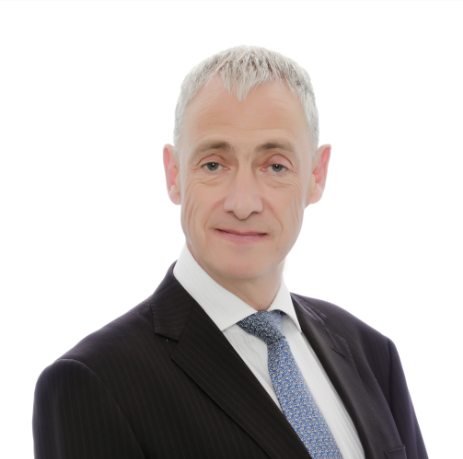Colin Sangster, Vice President – Asset Management at Tabreed, is responsible for managing all aspects of the Company’s subsidiaries and associates in Saudi Arabia, Qatar, Bahrain and Oman, through active participation in the Boards and management committees in these companies. Kasun Illankoon caught up with Colin to discuss about their latest projects and how they are performing in the GCC market.
- Can you briefly tell us about Tabreed’s projects in Bahrain?
Tabreed has some strong partners in Bahrain and has worked on key projects that have contributed directly to the country’s development.
For example, the Bahrain Financial Harbor is a waterfront commercial development project located on the northern shore of Manama, covering an area of 380,000 square metres. As one of Bahrain’s iconic landmarks, we’re proud to be the cooling partner of choice there.
Another one of our projects is Reef Island (also known as Lulu Island) – an artificial island in the archipelago of Bahrain. It lies a distance of 2 km north of downtown Manama, on Bahrain Island. In addition, we also work with the Bahrain World Trade Centre, a 240-metre-high (787 ft), 50-floor, twin tower complex located in Manama.
Lastly, Tabreed has been working with Avenues Bahrain, the first shopping and leisure destination of its kind in Bahrain. Cooling to the first of its phases was connected three years ago, and we are now looking to partner with Avenues Bahrain on the next phase of its expansion.
- What about the KSA market?
To start, we believe that the Kingdom of Saudi Arabia has great potential for growth thanks to its 2030 vision, which aims to reduce Saudi Arabia’s dependence on oil and diversify its economy. Our joint venture with Vision Invest will enable us to develop our offering there even more.
We have a strong base in KSA, as our first project there started with Saudi Aramco where we’ve provided them with district cooling to their head offices in Dammam since 2013.
Tabreed are also proud partners of the Jabal Omar Project, a mixed-use project that contains premium, luxury apartments and residential units, hotels, and commercial centers. It is composed of 40 towers situated on top of 16 structural bases with a total built-up area of approximately two million square meters. The project is now at the fourth of its five phases.
Additionally, we have also submitted bids for huge projects such as the Red Sea Project and the King Faisal Specialist Hospital and Research Centre, the Qiddiya project and as Al Jawharah Mall
Finally, Tabreed has been the district cooler of choice for the King Khalid International Airport since 2016.
- Oman is an evolving market – how can you describe Tabreed’s presence there?
We started in Oman in 2007 with Knowledge Oasis Muscat, a one million square meter technology park located near Muscat International Airport.
Tabreed also work with the Oman Avenues Mall, the largest mall in the Sultanate of Oman and previously known as the Lulu Mall.
Further to that, we continue to look at opportunities to add to our portfolio, and to that end have recently started providing cooling services to the Mall of Muscat.
Our experience in Oman has taught us that it is a very unique market, with opportunities largely focused on malls and hotels.
- What are your views/ perception for the district cooling sector in the region?
COVID-19 has presented some obvious challenges, but we are confident in the region’s fundamentals and expect the pace of growth for district cooling to continue in the coming years.
With governments across the region increasingly focused on sustainability targets, we believe district cooling is playing, and will continue to play an important role in supporting those efforts. If we use Saudi Arabia as an example, district cooling is of critical importance to megaprojects like the Red Sea Project and Neom, as they will require a large scale of cooling. For projects like these, district cooling is far more efficient than conventional cooling systems, using almost half of the electricity for the same amount of cooling provided by the conventional cooling systems.
There are some big opportunities for growth In Bahrain as well. In a congested area, there is limited opportunity to build substations and distribution networks for electricity. District cooling plants can help allay these concerns, as they save almost 50% of electricity that conventional cooling requires.
With our strong presence in the region, in addition to our wide network of local partners and shareholders, Tabreed is well-placed to capitalise on all opportunities in the coming years.

